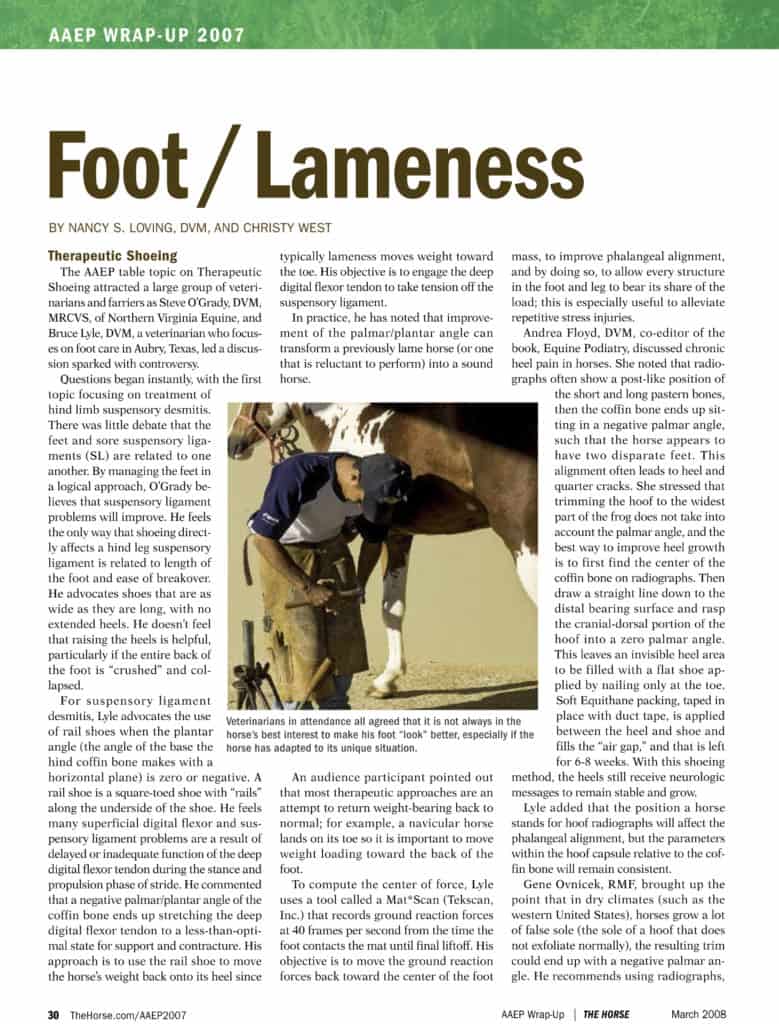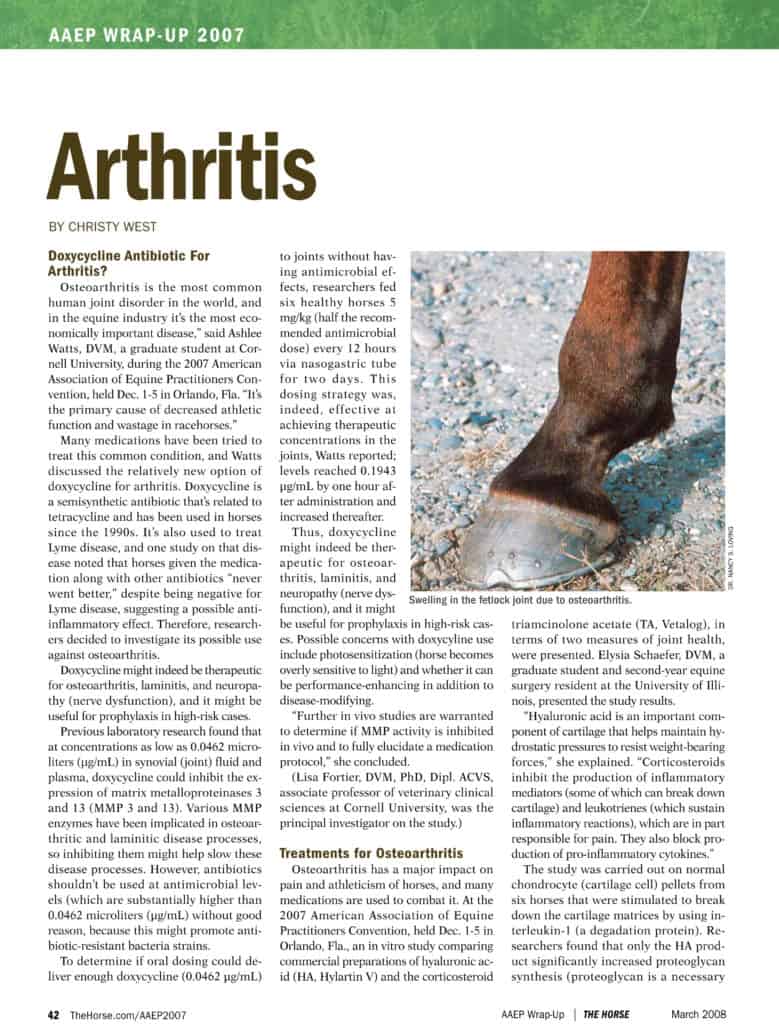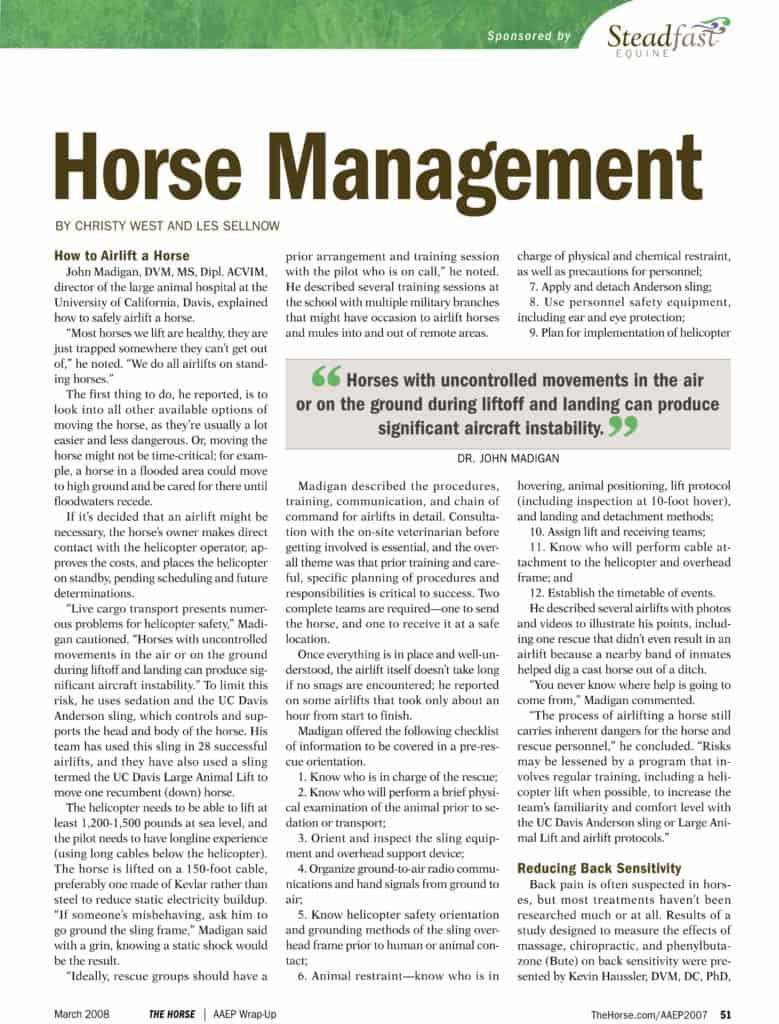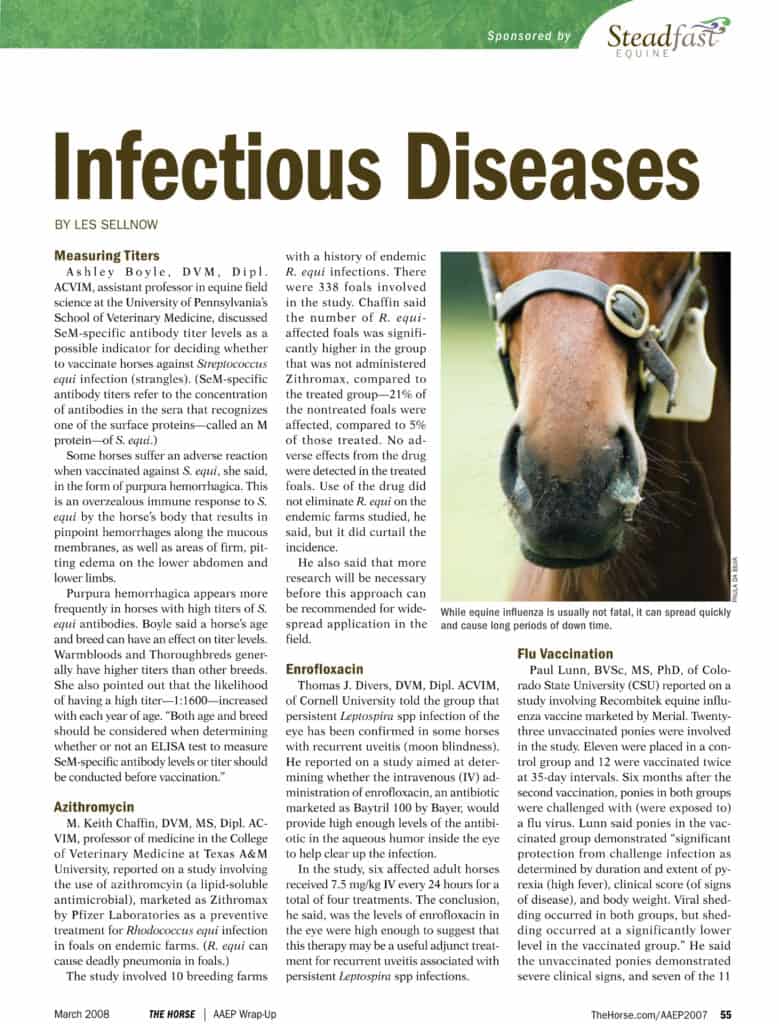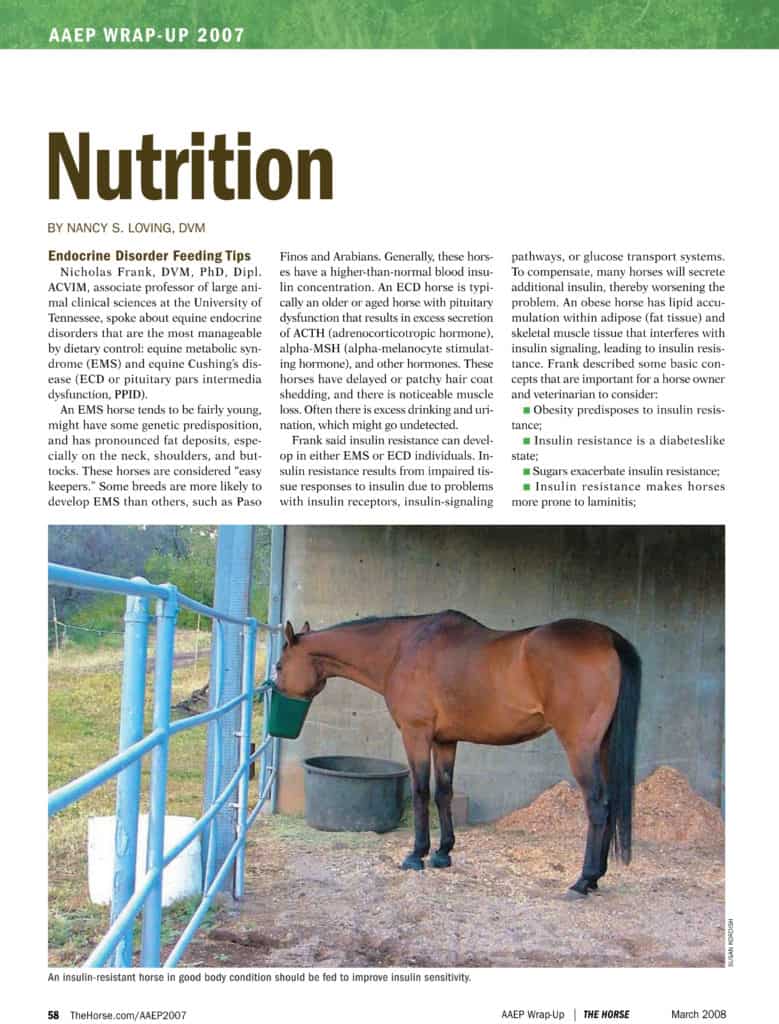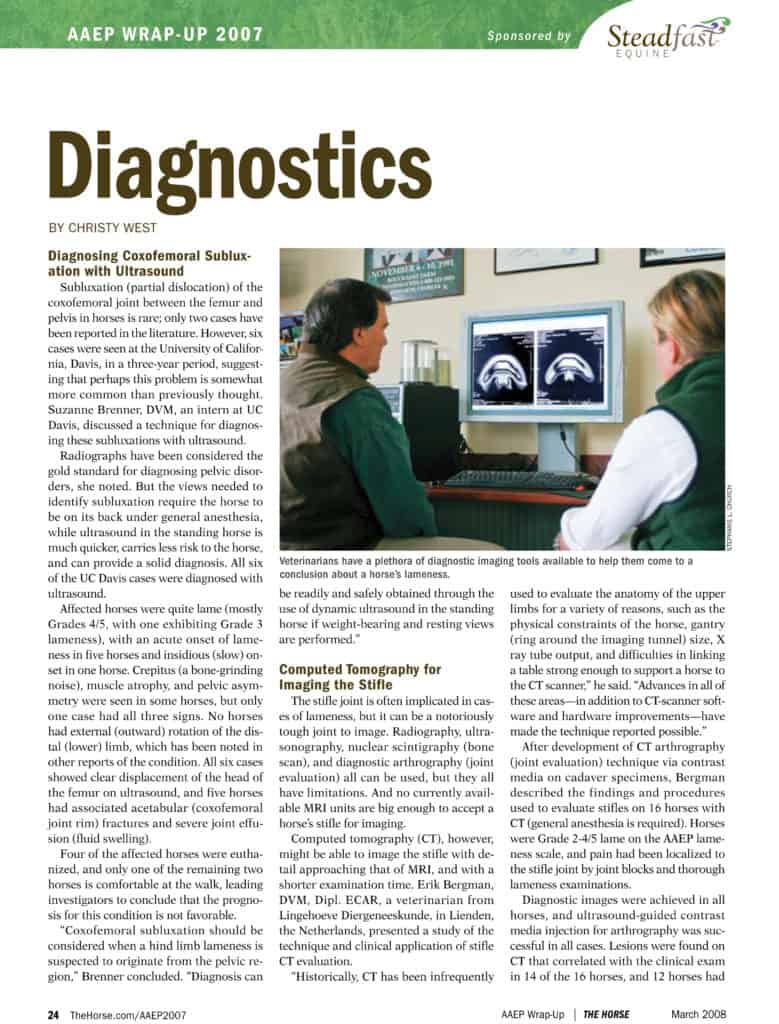
Diagnosing Horse Health Problems
Equine experts at the 2007 AAEP Convention discussed numerous diagnostic topics, including ultrasound, computed tomography for imaging the stifle, digital flexor tendon sheath nerve blocks, upper cannon area injuries, MRI for diagnosing sesamoidean ligament desmitis, radiograph repositories and quality, and airway exam results among other topics.

